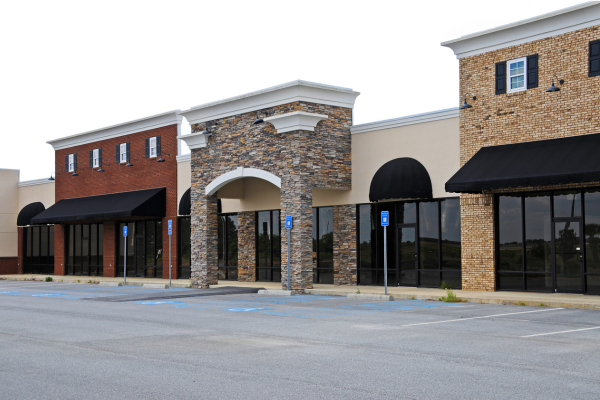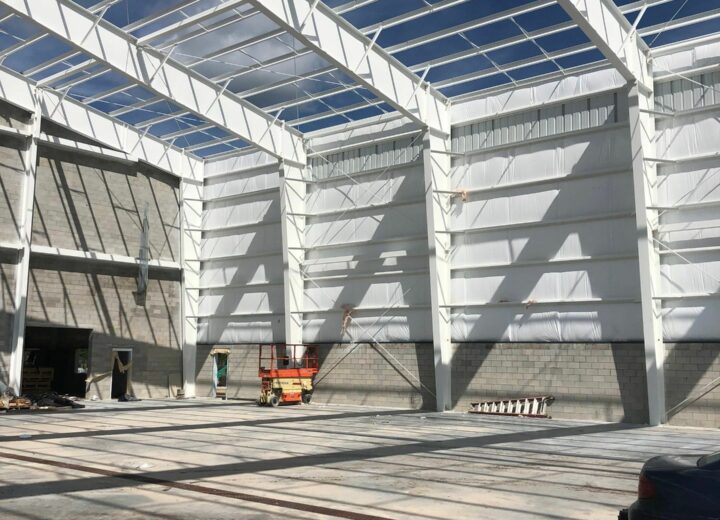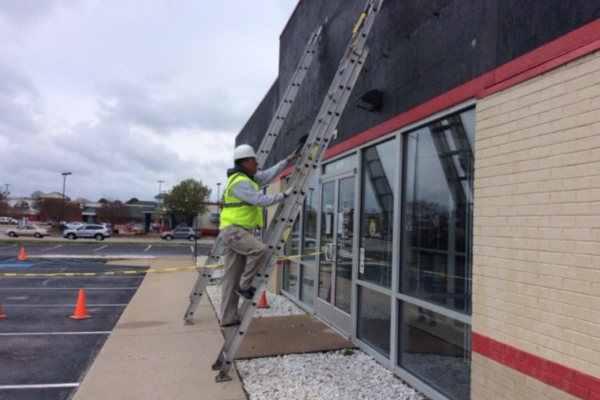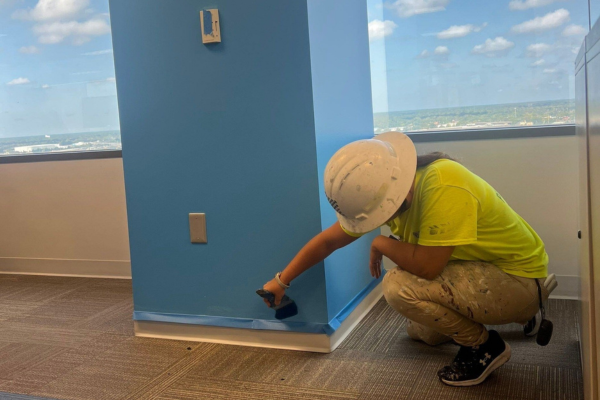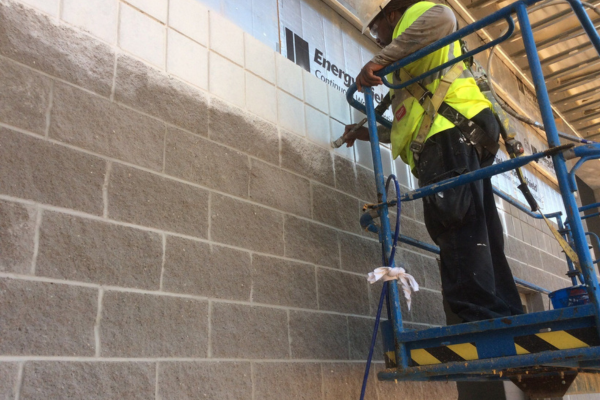Priming surfaces before painting isn’t always necessary. But the decision not to use primers can lead to regrettable consequences and significant extra costs, particularly in a large-scale commercial project.
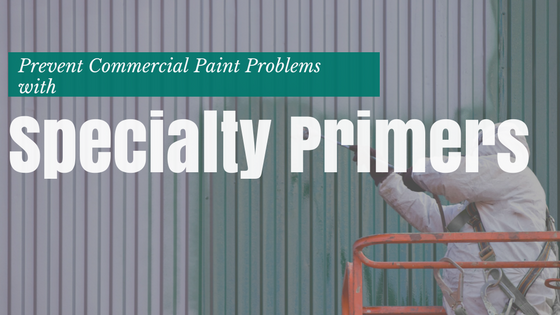
By applying the right specialty primer, compatible with the substrate and topcoat, a commercial paint contractor can prevent a whole host of problems, including blistering, flaking and peeling paint, unsightly stains, water damage, corrosion and fungal contamination.
To help you improve your next commercial painting project, here is a quick review of the most common specialty primers we use in commercial applications.
Bonding Primers
Unlike regular primers or 2-in-1 paint and primer products, specialty bonding primers are specifically formulated to promote the adhesion of topcoats to “difficult-to-paint” substrates, such as galvanized metal, glossy paint and vinyl. Therefore, these primers eliminate the need for intense surface prep work (e.g. sanding glossy surfaces to achieve roughened substrates that ensure better adhesion). Depending on the product selected, a specialty bonding primer may also be compatible with a wide variety of coating systems.
Stain-Blocking Primers
Water leaks, rust, grease, smoke residue and wood tannins are some common types of stains in commercial buildings. But the worst thing is that stains can bleed through newly applied topcoats, ruining their appearance.
To prevent that from happening, any commercial paint contractor would advise applying specialty stain-blocking primers. Available in oil- and water-based alternatives, these primers can be used to seal up porous surfaces and prevent stains from showing through coatings.
Two important specialty stain-blocking primers are:
- The so-called drywall primers, which are often applied over joint compounds and wall patches to conceal the differences between the substrates and repair products as well as prevent lime stains—that typically form around repair areas—from bleeding through the topcoats.
- Primers that are formulated with biocides to better control moisture and mold growth in areas that are damp all or most of the time, such as spa areas, indoor pools, saunas/steam rooms, laundry rooms, etc.
Vapor Barrier Primers
In Florida, years of exposure to rainwater and high relative humidity levels can take a toll on any building, potentially causing extensive structural damage and severe fungal contamination.
To prevent water damage and mold growth, a commercial paint contractor can use specialty primers specifically developed to minimize the passage of moisture and water through walls. Containing mildewcides, these primers deliver low-porosity paint films that can efficiently prevent water and fungal spores from reaching substrates.
Latex Enamel Undercoats
Latex-enamel undercoats like Accu-Pro Undercoater from Sherwin-Williams are ideal for commercial applications that require the highest quality finish. These primers provide a smooth, even surface that ensures superior gloss and color retention as well as excellent performance of semi-gloss and gloss paints, even when applied over substrates of varying porosity.
Concrete Floor Primers
Lack of time and high costs are two reasons why many business professionals tend to overlook concrete floor primers in commercial flooring projects. However, the right floor primer applied by a professional commercial paint contractor will:
- promote a much stronger bond between the substrate and floor coating;
- provide a reliable barrier against residual moisture;
- ensure not only a more uniform appearance, free of air bubbles and pinholes, but also longer lasting results.
If you’re located in Tampa, Jacksonville or neighboring locations in Florida and would like some assistance with your commercial painting project, Performance Painting Contractors has the resources to help you out. Please contact us today and one of our experienced professionals will answer any questions you might have about the most appropriate coating solutions for your project.

